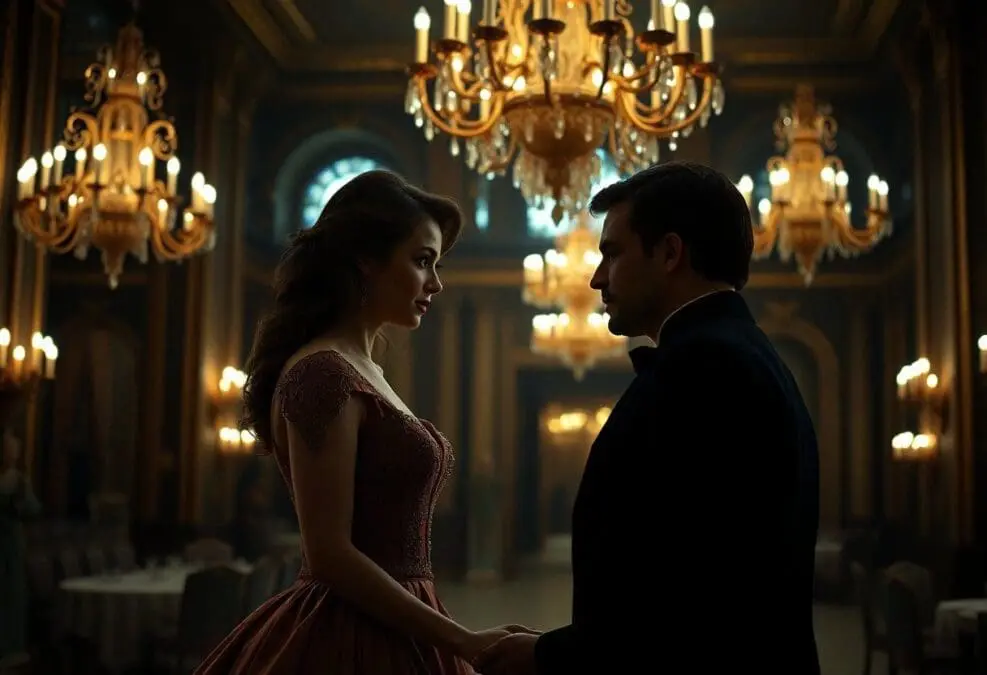From the publication of “Wolf Hall” in 2009 until the release of “The Mirror and the Light” last March, devotees of Hilary Mantel’s portrait of Tudor statesman Thomas Cromwell always had more to look forward to. Now, her acclaimed trilogy complete, fans must go elsewhere for historical novels with the complex characters, luminous descriptions and period authenticity that are the trademarks of Mantel’s fiction. One of these excellent, ambitious novels might be just what you’re looking for.
Ford Madox Ford’s “The Fifth Queen” (1906) concerns Catherine Howard, the unfortunate young Englishwoman chosen by Henry VIII in 1540 to replace the disappointing Anne of Cleves as his wife. The tale begins with a chance meeting between the king and erudite, pious Catherine in the treacherous court where Cromwell presides like Darth Vader, menacing and all seeing. In Ford’s portrait, Henry is weary, choleric and mercurial, while Catherine is completely sympathetic, nothing like the girl – frivolous and promiscuous – that many historians describe. The storytelling is less propulsive than Mantel’s: Ford labors over scene-setting and, like a playwright, uses speech and action to reveal motivation rather than explicating his characters’ thoughts. But he vividly captures the uneasiness felt by many in England at the loss of Catholicism, “the old faith,” and his artful use of archaic language transports a patient reader directly back into the heart of Tudor-world.
While Willie Stark, the messianic state governor at the center of Robert Penn Warren’s “All the King’s Men” (1946), doesn’t occupy a throne, he wields enormous power in the imagined Louisiana of the 1930s, recognizing no limits to his own will. Sprawling, melodramatic, with a structure that zigzags in time, this Pulitzer Prize-winning novel’s rise-and-fall story is told by Stark’s right-hand man, Jack Burden, someone in search of love and meaning who comes to understand that the actions of everybody – exalted or otherwise – have consequences. Warren was inspired by the demagogic Louisiana governor Huey Long, but Stark’s populist methods and the corruption of his confederates don’t seem utterly remote from our own day.
Gore Vidal gives us an American-style royal court with his masterly “Lincoln” (1984), bouncing from character to character, borrowing their point of view in turn, to create an artful portrait of the 16th president. In Mantel’s novels, the reader lives inside Cromwell’s head, but here the main character’s state of mind is a matter for interpretation. Lincoln emerges as a folksy, aphorism-spouting backwoods lawyer whose virtuosic political skills outstrip those of all the sophisticates around him. Vidal relishes the entertaining possibilities of his story, but there is nothing lightweight about this carefully researched work. The reader approaches the martyrdom of the president with dread, conscious that without Lincoln’s willingness to pay any price, the Union might indeed have collapsed.
Our 35th president, John Kennedy, proclaimed Mary Renault as his favorite novelist for her fictional evocations of Greece antiquity. “The King Must Die” (1958) tells the coming-of-age story of Theseus, the legendary Athenian king, whom Renault makes a fully human, completely believable youth living in a strange pagan world. Gods and goddesses are not rendered explicitly – but neither is their power denied. The climatic section finds Theseus among the seven girls and seven boys chosen by lottery to be tributes, shipped to Crete and trained to entertain crowds as they fight wild bulls to the death. Fans of Suzanne Collins’s dystopian “Hunger Games” novels will recognize the debt she owes to Renault’s highly original reimagining of the mythical past.
If what you most savored about Mantel’s Cromwell trilogy was its 16th-century setting, try the Northern Irish writer Maggie O’Farrell’s”Hamnet,” which last month won the Women’s Prize for Fiction in the U.K. O’Farrell takes the few scraps of historical evidence about William Shakespeare’s family and uses them to create a dense and lovely rendition of their domestic life. Yet Shakespeare himself isn’t at center stage – O’Farrell is interested in Anne Hathaway, called Agnes here, who in Stratford-upon-Avon in 1582 married a young Latin scholar, later the famous playwright. After Agnes and her husband suffer the crushing loss of their 11-year-old son, Hamnet, the playwright produces a play with a variant of the boy’s name as the title. This Agnes is bestowed with not only second sight, but certain modern attitudes and an independence of thought that feels anachronistic. In this regard, O’Farrell is playing to the galleries of today’s female-dominated book club audience. Her novel, while admirably evocative in its physical details, throws into high relief Mantel’s amazing accomplishment. Mantel summoned from the past a human being, called Thomas Cromwell, who isn’t a replica of the real man, but a fictional creation with the mind-set of his age, who despite that can still illuminate the struggles, desires and griefs of people throughout time.
– – –
McHugh is the author of the novel “A Most English Princess: A Novel of Queen Victoria’s Daughter.”












